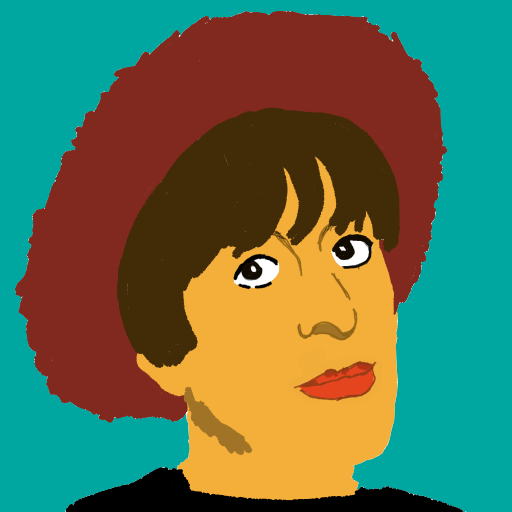 This 2018 Galician Literature Day would be devoted to the teacher and writer María Victoria Moreno Márquez (Valencia de Alcántara, Cáceres, 1939 – Pontevedra, 2005). Graduated in Romance Philology from Madrid, María Victoria Moreno arrived in Galicia as a teacher on 1963, at the early aged of 22. Soon she shouldered Galician citizenship as long as she enrich Galician literature with her narrative works –outstanding books addressed to children and young readers–, her literary papers, her essays, her poetry or with her contributions to didactics on Galician language and literature.
This 2018 Galician Literature Day would be devoted to the teacher and writer María Victoria Moreno Márquez (Valencia de Alcántara, Cáceres, 1939 – Pontevedra, 2005). Graduated in Romance Philology from Madrid, María Victoria Moreno arrived in Galicia as a teacher on 1963, at the early aged of 22. Soon she shouldered Galician citizenship as long as she enrich Galician literature with her narrative works –outstanding books addressed to children and young readers–, her literary papers, her essays, her poetry or with her contributions to didactics on Galician language and literature.
On 1993, at a congress on outlander poets that used Galician language she said that her relationship with Galicia and its language was just a love story. Two decades before, María Victoria Moreno had published her first book on Galician language, Mar adiante (“Out to sea”, 1973). This book was illustrated by the author herself. A year after, the second prize of the Facho’s National Competition on Children Tales was awarded to her Crarisa e o luceiro (“Clarisse and the bright star”). With this first novel, the Extremaduran teacher became one of the pioneer voices of Galician narrative addressed to young readers. Both the critic and the audience would praise her work, which most of her later production also dedicated to the youth audience.
One of the renowned novel on Galician young literature would be her work Anagnórise (“Remembrance”). This novel was included on the International Board on Books for Young People (IBBY) honour list on 1990, shortly reaching the twenty editions. In spite of that, her favourite book was Leonardo e os fontaneiros (“Leonard and the plumbers”), that won the third Barco de Vapor prize on 1985. Her works entered the prestigious White Raven international list on 2002 with Gedellas de seda e liño (“Locks of silk and linen”), another story that shows her closeness to the young audience. A couple of years after Diario da luz e a sombra (“Diary of light and shadows”) reflicted her personal experience agains the illness that ended her life back on 21th of november of 2005.
María Victoria Moreno also passed on her students her strong passion for language and literature. She gave free clandestine lessons during the seventies in Pontevedra (Asociación de Amigos da Cultura, 1971-1974), Vilagarcía de Arousa (1973-1975) or Ourense (Ateneo, 1974-1975), in addition to the oficial Spanish lessons that she teached for a long while. The Police did confiscate her passport when they found out about the clandestine lessons in Ourense, as long as they considered the institution where she gave her lessons a subversive organization.
She encouraged one of her students, Xesús Rábade Paredes, in his literary and linguistic inquiries back in Lugo’s high school. His first poetry book was promoted to edition by her, and she even wrote the prologue to it. After Lugo and Vilalonga (Sanxenxo), María Victoria came back to Pontevedra, where she carried on her charm offensive about letters, first at Valle-Inclán’s High School and then at Torrente Ballester’s High School, to which she left her personal library.
Her rigorous academic work could be exemplified on her text books –Literatura [galega]. Século XX, para COU (Galaxia, 1985), e de Literarura [galega], para 3º de BUP (Galaxia, 1987), As linguas de España e Verso e prosa (Xunta de Galicia, 1991) – and her didactic courses for teachers on the early eighties.
María Victoria Moreno was an interesting translator that worked on the Catalonian field –she translated outstanding works to Galician language– but also on the Spanish one –this time, translating Galician works onto Spanish, like Os novísimos da poesía galega (“New poets on Galician poetry”) –. Another facet of her working life was her bookstore on Pontevedra, Xuntanza (“Meeting”), another spot where her love for books spread over the city. We mustn’t forget that, from the beginning, she was the co-director of Galaxia’s children book collection Árbore (“Tree”).
Based on the Galician Royal Academic's praise of the author.